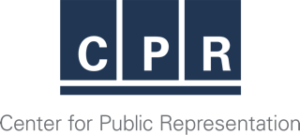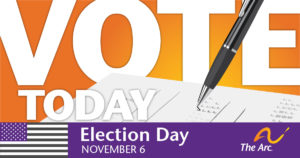Written in partnership with:


What is the Public Charge rule?
On October 10, the Department of Homeland Security announced the “public charge” rule. This rule allows the U.S. to keep out people who may become a “public charge.” Someone is called a “public charge” if the government thinks you might depend on government benefits to meet your needs. Someone who is called a “public charge” will be discriminated against if they try to enter the U.S. (get a visa) or get a green card (become a permanent resident).
The proposed rule is unfair, dangerous, and blatantly discriminatory. The rule would exclude people from this country simply because they have a disability.
The U.S. has already had a public charge rule for a long time. The new rule will make things much worse. Under the old rule, someone was only considered a public charge if they used cash benefits, like social security or TANF, or if they lived in an institution. The new rule uses a much bigger list of programs and benefits, and it also looks at other things like someone’s health and income.
The Rule Discourages the Use of Important Programs and Benefits
The new rule will discourage families from using important services for fear of harming their immigration status. People with disabilities and our families often need to use government benefits in order to stay fed, housed, and healthy. Under the new rule, using–or even just applying for–these benefits will count against us. Some of the programs and benefits that will count against us under this new rule are:
- Medicaid
- Food stamps, or SNAP
- Medicare Part D assistance
- Section 8 housing assistance
- Children’s Health Insurance Program, or CHIP (they are still deciding whether to include this program)
In addition, the rule will also look at someone’s income. If someone or their family is lowincome, that will count against them.
The Rule is An Attack on Medicaid
The public charge rule is another attack on the basic services people with disabilities receive through Medicaid. The new rule includes the Medicaid-funded services that help people with disabilities stay in our homes, work, go to school, and live in our communities. These services are sometimes called waiver services, personal care services, nursing services, respite, intensive mental health services, and employment supports.
This creates an unfair choice for people with disabilities and our families. Medicaid is the only source for community living supports for people with disabilities. Community services simply aren’t available under private insurance. This rule will force immigrant families to choose between surviving without needed community services or being denied entry into this country just because their family member has a disability and might need services.
The Rule Discriminates Against People with Disabilities
The proposed rule directly discriminates against people with disabilities and chronic health conditions. In addition to benefits, the rule looks at a person’s health to decide if they will become a public charge. If someone has certain medical conditions, that counts against them. If someone doesn’t have a medical condition or a disability, the rule says that is a “positive factor.” This is unfair and discriminatory to people with disabilities and chronic health conditions.
The rule specially calls out people with the “most expensive health conditions,” including:
- Heart disease
- Cancer
- Trauma
- Mental health conditions
The rule also looks at whether or not a person can obtain private health insurance to pay for the medical costs the government thinks they will have because of their chronic health condition or disability. If someone doesn’t have health insurance, that counts against them. But because many important community services are only available through Medicaid and are not covered by private insurance, many people with disabilities won’t pass this test.
In other words, the proposed rule would exclude people with disabilities simply because they have a disability.
The Rule Isn’t Final Yet
If the new rule is put into practice, it will hurt many immigrants and immigrant families, including people with disabilities. But there is still time. For the next 60 days, the Department of Homeland Security is taking comments on the rule. Anyone can comment on the rule, and the government is required to read and respond to the comments. It is critical that the disability community sends in as many comments as possible explaining why this rule is dangerous and discriminatory and why it should not be put into practice. If we all speak up, we can keep this rule from being implemented.
For more information, please visit https://medicaid.publicrep.org/feature/public-charge/ and https://protectingimmigrantfamilies.org/. These websites include information and resources on how to comment.
For more information on this and other topics, visit
- www.thearc.org
- ASAN: autisticadvocacy.org
- CPR: centerforpublicrep.org





 The Arc of Loudoun and its Executive Director Lisa Kimball sure do know how to get in the Halloween spirit.
The Arc of Loudoun and its Executive Director Lisa Kimball sure do know how to get in the Halloween spirit.





